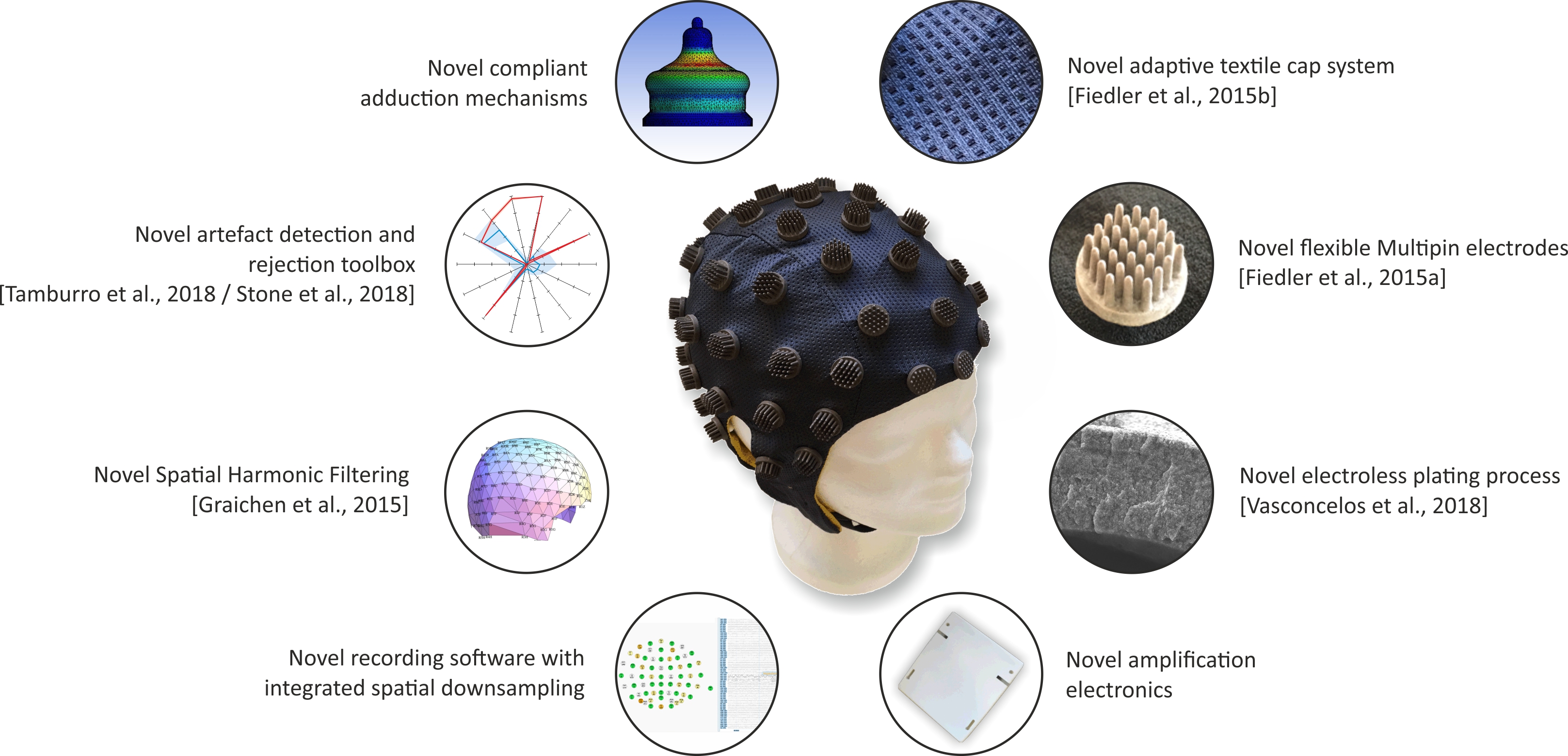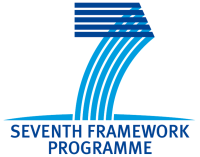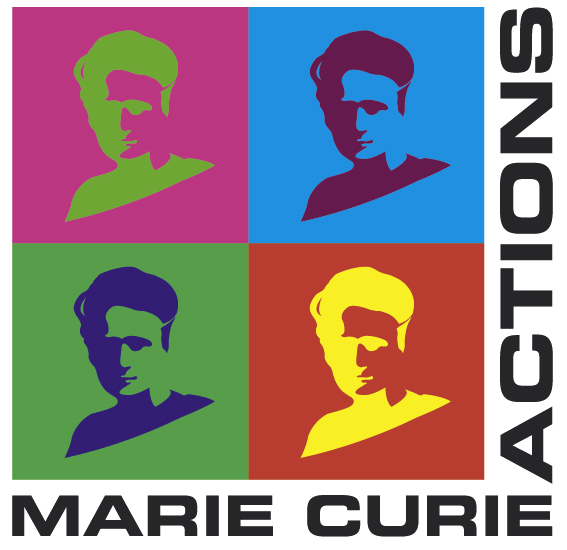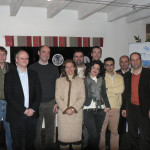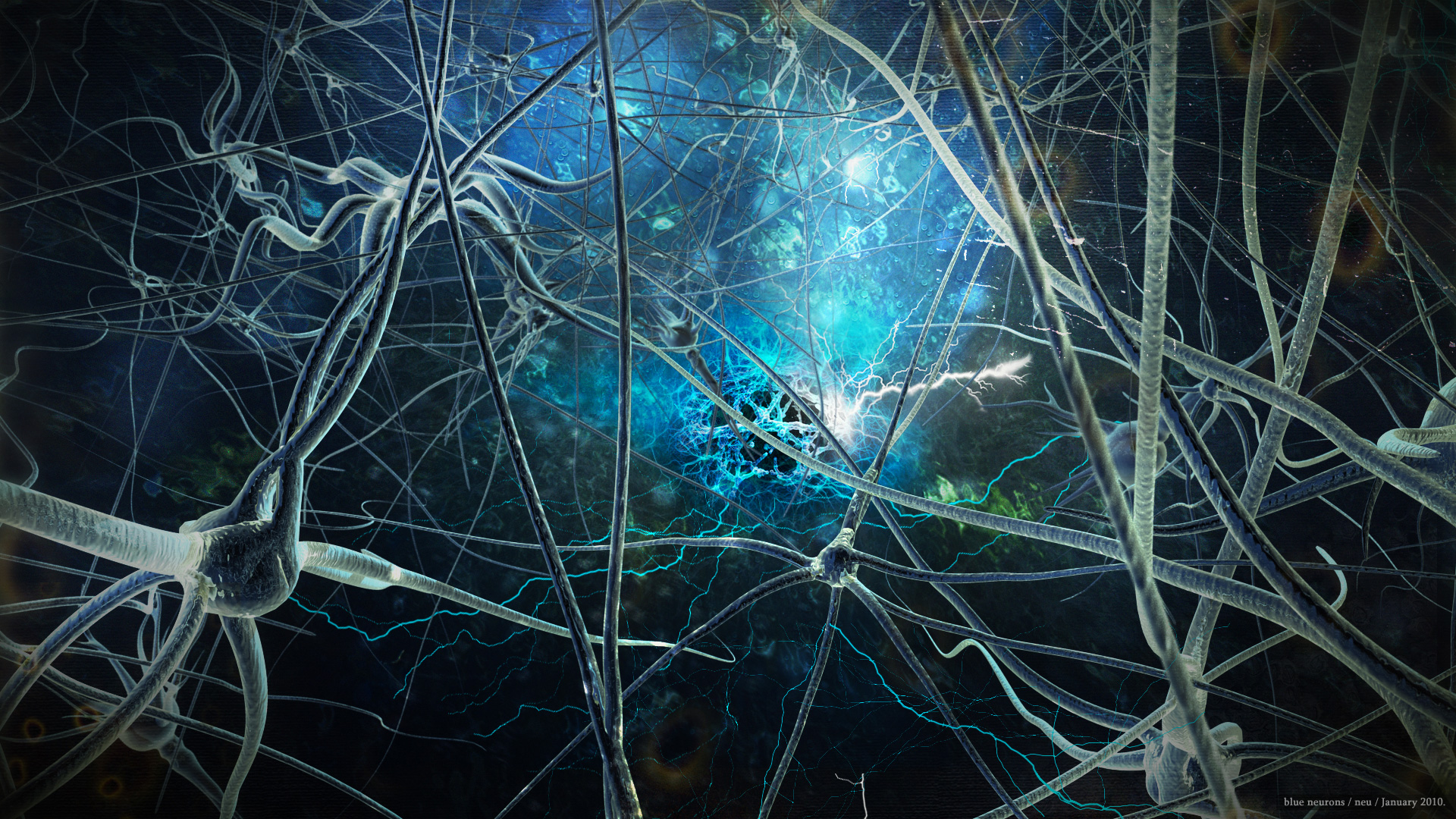
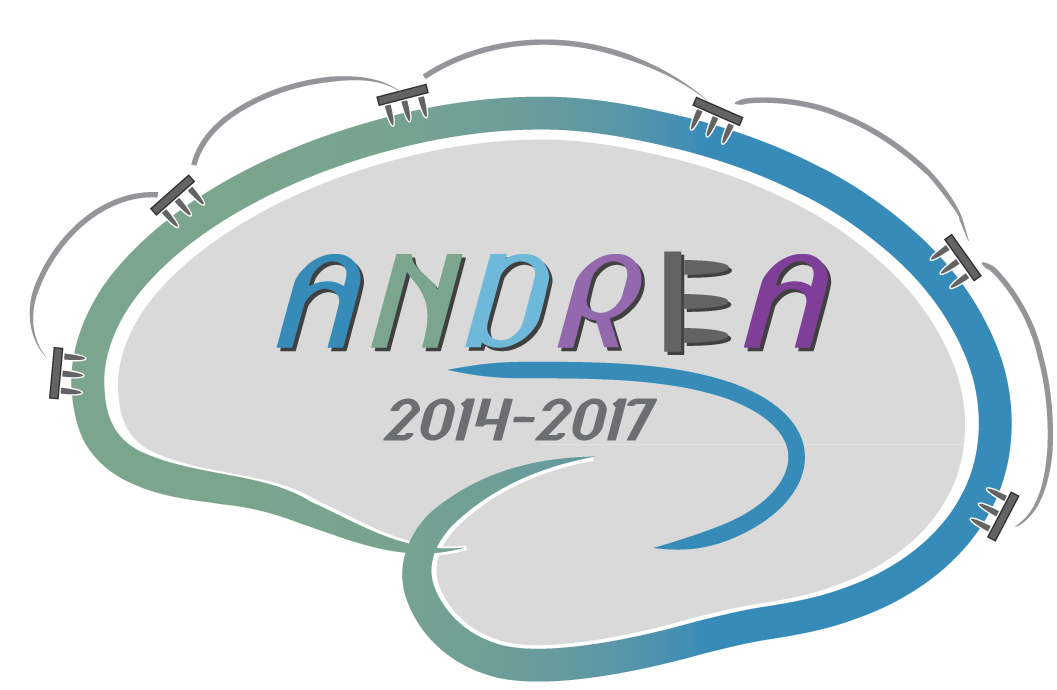
Active Nanocoated
Dry-electrode
for Eeg Applications
Project summary
ANDREA is an EU-funded FP7-PEOPLE Marie Curie Industry-Academia Partnership and Pathways (IAPP) project running from January 1, 2014 until December 31, 2017 (http://cordis.europa.eu/projects/rcn/109927_en.html). The aim of ANDREA is to develop an Active Nanocoated DRy-electrode for Eeg Applications.
Multichannel electroencephalography (EEG) is a well-established method for investigating the function of the human brain. However, despite continuous advancements in signal amplification and data processing, difficult and error-prone signal acquisition on the head surface is still a major issue limiting its employment in basic and clinical research.
The ANDREA project developed a novel dry electrode EEG system with adjustable cap network provided with an automated sensor positioning mechanism, active preamplification and a SW toolbox for artefacts removal. The novel technologies address the requirements of high signal quality and reliability, mobility, high patient/subject comfort and long-term use, and have been validated in clinical and non clinical populations to produce a prototype optimized for broad EEG employment.
